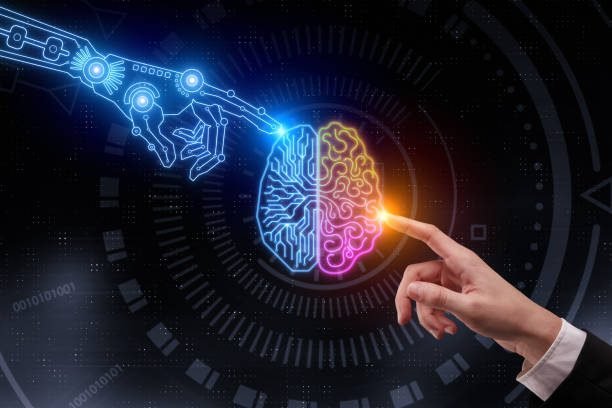Last updated on April 6th, 2024 at 07:17 pm
The computer industry has presented us with boons to advance our future in unimaginable ways with machine learning (ML), artificial intelligence (AI) and data science. These three components are dominating the industry and have been making lives easier since their inception.
These things might be separate branches, but they are interrelated with one another. If you are taking up an AI certification separately, then you must also understand machine learning and data science as a whole. Due to their interrelation, job opportunities in these fields are trending, making them the industry’s most demanding professions.
In this article, we will discuss the interrelation between AI and ML, their scopes, applications and benefits in the current world.
What are artificial intelligence and machine learning?
According to Statista, the forecast for the global growth of AI in the software market from 2019-2025 would be approximately 54%. The forecast size would reach more than US $22.6 billion. AI and ML reduce human labour and make it possible to gain accurate results in no time.
But the question arises, what are AI and ML? Well, let’s find out.
Artificial Intelligence (AI)

Artificial intelligence is the field of computer science that mimics human intelligence to perform various tasks like speech and image recognition, decision-making, and calculations. It is built using techniques and algorithms of natural language processing or computer vision. AI intends to be intelligent enough to replace human activity in the future.
Machine Learning (ML)
Machine learning is a subfield under AI. It is used to make future predictions over a particular problem based on pre-loaded data. One of the finest examples of the usage of ML is to decipher whether an email is spam or not. The email provider helps you detect spam by using various algorithms like regression and classification. ML also has a subfield called deep learning inspired by the working procedure of the human brain.
Interrelation between AI and ML
AI and ML fall under the same domain. Machine learning is a subfield of artificial intelligence. Even though they are related inherently, they are not synonymous. Let’s read about their connection.
Focus on developing new programs
AI and ML have similar outcomes – managing intelligent software and handling more complex tasks. Both AI and ML are incorporated into companies to take over human tasks and finish them quickly. The procedure might differ between the two, but the objective is the same.
AI intends to mimic human activity, whereas ML uses historical data to automate the results.
Machine learning as an extension of artificial intelligence
Machine learning can be used in AI applications to improve upon them. Ml is capable of answering on its own without the need for additional programming.
Reliance on data
Both ML and AI rely on data for gaining results. It is often overlooked, even though they play a crucial role in computer programming. The predictions are made via ML, acting as a middleman between artificial intelligence and data science. AI extracts and understands the data, and ML, on the other hand, helps in concluding and proceeding with the data.
A fine example of the collaborative work between AI and ML is self-driving vehicles. Sensors collect the images, which are then processed through ML, helping to make quick, concise decisions. However, gathering accurate data is the key here.
Benefits, scopes and applications of artificial intelligence and machine learning
McKinsey and Company have predicted that AI and ML will develop an additional economic output of around $1.3 trillion in 2030. Servion Global Solutions have also specified that by 2025, 95% of customer interactions would be taken over by AI.
Here we have listed the different benefits, scopes and applications of AI and ML.
Benefits
One of AI and ML’s primal benefits is increasing the organisation’s performance. Since data is an extremely valuable component of an organisation, utilising that data is the key to the organisation’s success. For example, since manual data preparation takes a considerable amount of time, automating the procedure would be easier and allows the data to be streamlined. This, in turn, would lead to a seamless business performance without the wastage of any resources.
Besides, AI and ML also help transform the customer experience by personalising the customer experience. Due to this, the rate of customer retention is more than the traditional selling experience.
Scope
ML and AI possess tons of scope both in the present and future.
- Automation: AI aims to automate any repetitive high-volume task by setting up a reliable system saving loads of time. ML uses historical data to formulate future forecasts.
- Producing intelligent products: AI and ML can turn conventional products into intelligent commodities. It works much better when they are paired with conversational platforms and bots.
- A progressive learning method: AI and ML algorithms can train machines to perform any desired functionality. These algorithms also work as predictors and classifiers.
- Data Analysis: Machines learn data from analysing and identifying accurate data sets. This becomes very important in any organisation. Furthermore, the use of neural networking helps immensely in training these machines.
Applications
Machine learning and artificial intelligence are applied in day-to-day tasks. A few examples are listed below:
- Chatbots
- Image recognition systems
- Curating smart content
- Voice assistants
- Autonomous vehicles
- Traffic prediction
- Product recommendations
- Email spam and malware filtering
- Online fraud detection
Conclusion
The evolving aspect of AI and ML make them hot topics with innumerable future job prospects. If you wish to switch your career for the better, then you can check out Imarticus Learning’s artificial intelligence and machine learning certification course by IIT Guwahati, presented in collaboration with IIT Guwahati. Taught by top IIT faculty, this IIT artificial intelligence course would give you good job opportunities.

